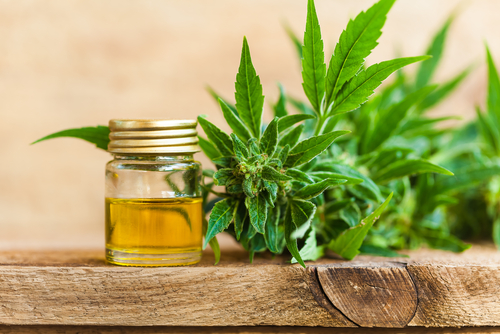Thirty-three states have legalized medical marijuana, which is making it easier for medical experts to study its beneficial properties. New research suggests that marijuana could even be used to treat alcohol and opiate addiction.
Marijuana Could be the Key to Treating Alcohol and Other Addictions
Cannabis compounds can be very beneficial for people seeking therapeutic treatment for alcoholism and other forms of substance abuse. This has been demonstrated in several clinical investigations on the effects of cannabidiol. An active enzyme in this plant that seems to present potential results in the treatment of addiction to marijuana and alcohol. The therapeutic use of cannabis has been controversial for many years, but this is changing as people around the world take a more progressive stance on it. Two clinical investigations have shown that one of its components, cannabidiol, can have important beneficial effects for the treatment of alcohol and opiate addictions. Meenakshi Sabina Subbaraman of the Alcohol Research Group is one of the few researchers in the United States to study the link in his paper: Can Cannabis be Considered a Substitute Medication for Alcohol?. There is more evidence in other countries, such as Spain. Numerous experts have highlighted these discoveries and created new opportunities for clinical research on the effect of the active principles of the cannabis plant. The research could lead to the development of new synthetic derivatives, which might play an instrumental role in alcohol and opiate treatment.
Marijuana is Surprisingly Beneficial for the Treatment of Alcohol Dependence
Cannabidiol’ is a compound from the cannabis plant that lacks addictive properties and may be useful for the treatment of alcohol and marijuana addiction. According to findings of the Translational Neuropsychopharmacology of the Institute Neurosciences of Alicante, mixed center of the University Miguel Hernández (UMH) of Elche, this could be very important in treating substance abuse problems. The CSIC submitted the findings to the National Network of Addictive Disorders of the Ministry of Health This is one of the few studies in the world that focused on the effects of ‘cannabidiol’ in the treatment of drug addictions, which makes it an especially important study. The director of this group, Jorge Manzanares, who is the professor of Pharmacology and dean of the Faculty of Pharmacy of the UMH, , explained that his team has spent four years studying the properties of cannabis. He states that due to prohibition in the 1960s, research had been halted for many years, so “we still do not know too much”, despite the fact that there is a “growing interest in its therapeutic potential and not addictive.” As a result of these investigations, the group has published several articles this year, which have generated great interest in the field of addiction treatment. Daddy Burt and other extracts could be particularly useful Manzanares worked closely with Adrián Viudez Martínez, María Salud García Gutiérrez and Francisco Navarrete, Ani Gasparyan and Auxiliadora Aracil Fernández. All of the researchers are from the Department of Neurosciences and the UMH. Ana Isabel Fraguas Sánchez and Ana Isabel Torrez Suárez from the Complutense University of Madrid also worked on this project. They have also participated in the design of a slow release pharmaceutical form. In a context where cannabis use is known to modify brain function and increase vulnerability to the use of other addictive substances, such as alcohol, cocaine and opiates, ‘cannabidiol’ is one of a hundred plant compounds that, according to Manzanares, “would be worth studying their results in humans”. Combining low doses of cannabidiol with ‘naltrexone’, the drug most used to treat alcoholism, is more effective. Animal tests conducted over the last 4 years indicate that ‘cannabidiol’ reduces alcohol addiction and reduces to 50 percent the risk of relapse in animals in which consumption is interrupted. Some results have been published in scientific journal ‘Addiction Biology’.

